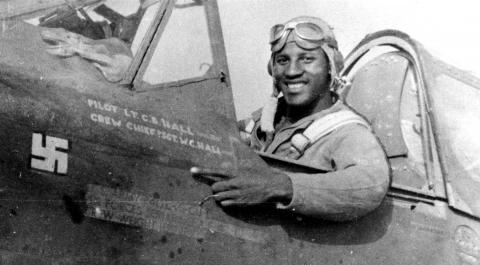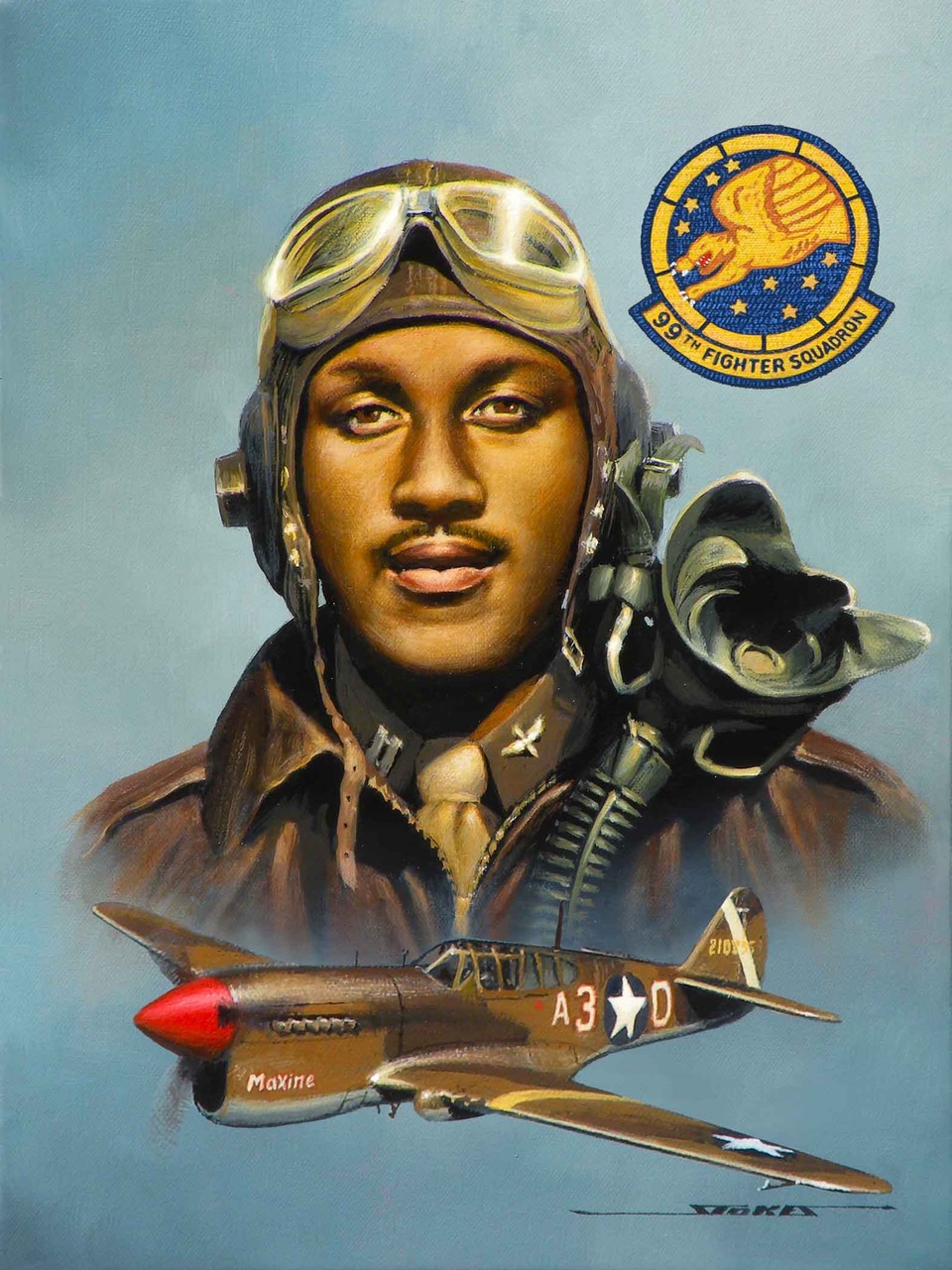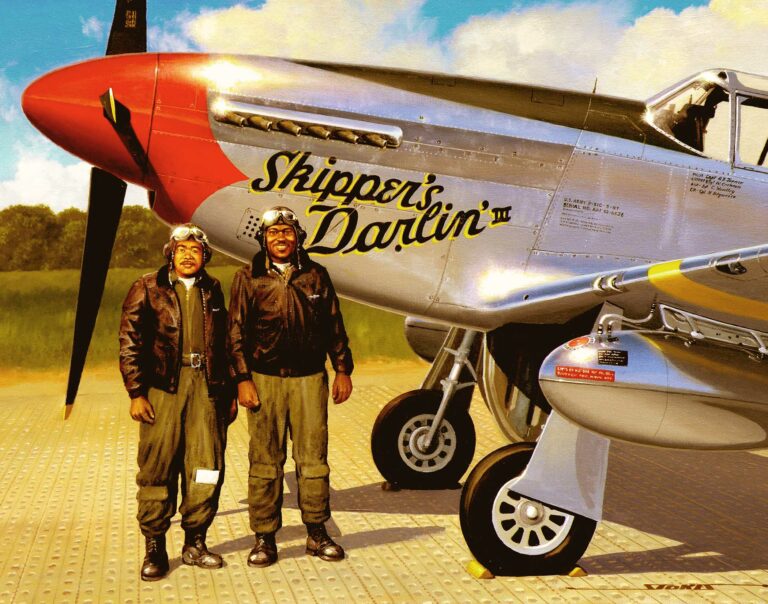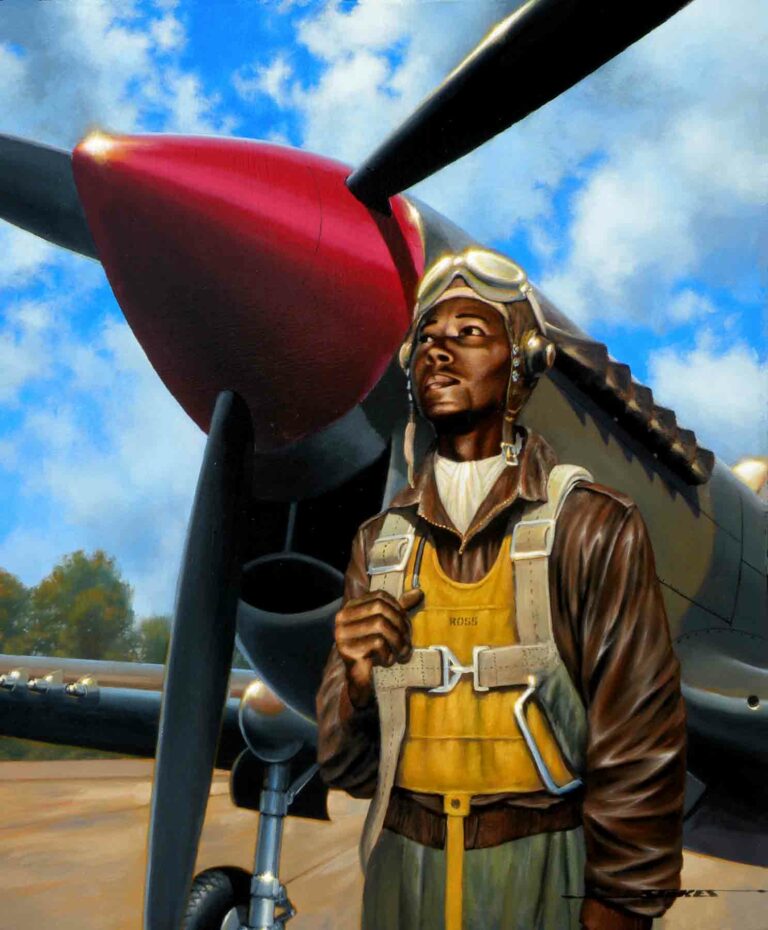Tuskegee Airman Charles Hall made history for himself and his fellow 99th Fighter Squadron pilots.
After three years of college, Charles enlisted in the US Army as an aviation cadet. He was a member of Tuskegee Class 42-F-SE. On completion of training, Charles B. Hall was commissioned as a second lieutenant of the U.S. Army Air Force on July 3, 1942. He was assigned to the 99th Fighter Squadron.
The 99th FS was the first unit of the Tuskegee-trained pilots to be deployed overseas. The squadron was sent to North Africa, April 2, 1943, as part of the 33rd Fighter Group.
On July 2, 1943, the 99th was escorting USAAF B-25 Mitchell medium bombers in the skies over Castelventrano, Western Sicily. Enemy fighters intercepted the flight.
In Charles’ own words, “It was my eighth mission and the first time I had seen the enemy close enough to shoot at him. I saw two German Focke-Wulf 190s following the bombers just after the bombs were dropped. I headed for the space between the fighters and bombers and managed to turn inside the Jerries.”
He continues, “I fired a long burst and saw my tracers penetrate the second aircraft. He was turning to the left, but suddenly fell off and headed straight into the ground. I followed him down and saw him crash. He raised a big cloud of dust.”
Hall was the first of the 99th Fighter Squadron and the first Tuskegee Airman to have downed an enemy aircraft. For this, he was awarded the Distinguished Flying Cross. Before the war ended, he had flown 198 combat missions and had been promoted to the rank of major.





